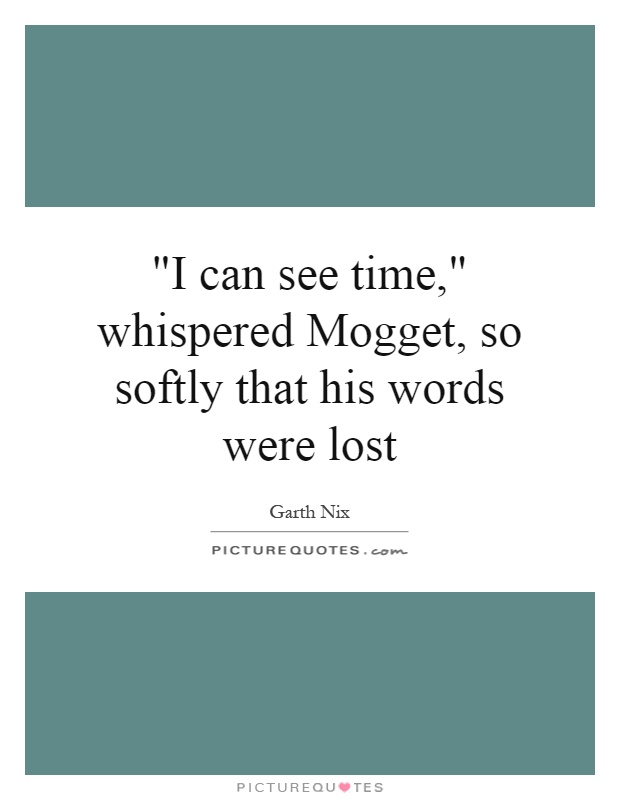"I can see time," whispered Mogget, so softly that his words were lost

"I can see time," whispered Mogget, so softly that his words were lost
"I can see time," whispered Mogget, so softly that his words were lost. These words, spoken by the enigmatic and mischievous magical creature in Garth Nix's novel "Sabriel," hold a profound significance in the story's intricate and fantastical world.Mogget is a mysterious being, bound in the form of a small white cat but possessing immense power and knowledge. His ability to see time hints at his deep connection to the fabric of reality and the forces that govern it. In the Old Kingdom, where the novel is set, time is not a linear concept but a fluid and malleable force that can be manipulated by those with the knowledge and skill to do so. Mogget's ability to see time suggests that he is not bound by the constraints of mortal beings and has a unique perspective on the world around him.
The idea of seeing time also speaks to the theme of perception and understanding in "Sabriel." Throughout the novel, the characters must navigate a world filled with magic, danger, and uncertainty. Mogget's ability to see time represents a deeper understanding of the world and its workings, a perspective that is beyond the grasp of most mortals. His whispered words hint at the vastness of the universe and the mysteries that lie beyond human comprehension.
Furthermore, Mogget's statement foreshadows the events that unfold in the novel. As Sabriel, the protagonist, embarks on a perilous journey to save her father and the Old Kingdom from a great evil, time becomes a crucial factor in her quest. The ability to see time gives Mogget a unique insight into the unfolding events and allows him to guide Sabriel on her journey.












 Friendship Quotes
Friendship Quotes Love Quotes
Love Quotes Life Quotes
Life Quotes Funny Quotes
Funny Quotes Motivational Quotes
Motivational Quotes Inspirational Quotes
Inspirational Quotes